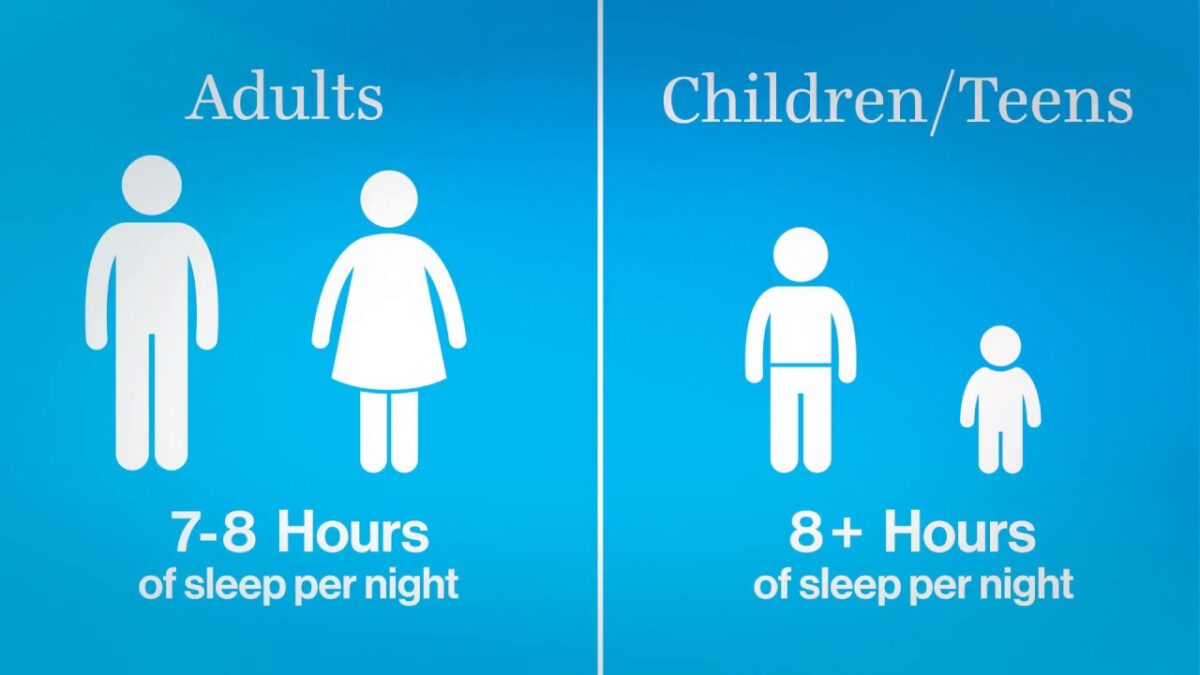You may be wondering how much sleep is enough to maintain good health. According to a study by the University of California, San Francisco, some people can function perfectly on only six hours of sleep. These people are, however, a rare breed and 97% of the population needs at least eight hours of sleep a night. Therefore, the quality of your sleep is as important as the number of hours you get.
Insufficient sleep can lead to mood swings
Insufficient sleep can cause drastic changes in a person’s mood. It can make people more angry and irritable, and it can also worsen the effects of daily stress. Hence, it is important to get a good night’s sleep to stay in the right frame of mind. This article will show how insufficient sleep can cause mood swings and how to combat these feelings. We’ll also cover how to manage your mood swings in order to avoid experiencing a dreadful situation.
Researches have found a correlation between sleep deprivation and higher levels of emotional reactivity. As a result, sleep-deprived individuals are more likely to react negatively when something goes wrong. Sleep loss disconnects the amygdala from the area of the brain that regulates its functions, increasing negative mood and decreasing anger regulation. The effects of sleep deprivation on mood swings are far-reaching, and are well worth looking into.
Lack of sleep is directly related to increased levels of stress and mental illness. It can also affect creativity and decision-making processes, which may lead to mood swings. In addition to disrupting relationships, insufficient sleep can negatively impact a person’s emotional state. Sleep-deprived individuals are more likely to become angry and irritable, which can affect their performance and relationships. The amygdala is responsible for regulating emotion, and it becomes overactive when it is not getting enough sleep.
Weight gain
Studies have found that people who don’t get the recommended amount of sleep can significantly increase their BMI. According to the National Sleep Foundation, those who don’t get seven to nine hours of sleep per night are almost a third more likely to gain weight. Conversely, people who get seven or more hours of sleep per night are less likely to gain weight. However, chronic lack of sleep has other surprising consequences, including the ability to increase appetite and gaining weight.
The medical community is still grappling with the complex relationship between sleep and body weight. Despite this, studies have revealed that more sleep leads to less weight gain, and less sleep may even lead to greater obesity. However, research has shown that Americans are consistently falling short of the recommended seven or eight hours of sleep, and their sleep quality has declined over time. Additionally, over the past few decades, the average BMI of Americans has increased, reflecting a trend toward higher body weights.
A review of 30 studies found that a lack of sleep is linked with increased weight gain. Nurses who sleep five or less were more likely to be obese than those who get eight hours. Researchers also found that fewer hours of sleep negatively affected both appetite and metabolism. Insufficient sleep has also been linked to emotional eating and weight management problems. A lack of sleep triggers a high production of the hormone cortisol, which tells the body to store fat and conserve energy instead of using it.
Lack of sleep is associated with increased food intake, calorie intake, and decreased physical activity. Not getting enough sleep has been linked to increased weight, obesity, and unhealthy food choices. In order to make your body work at its best, you must get at least seven or eight hours of sleep each night. If you are unable to sleep, try to read a book, listen to a podcast, or listen to an audiobook to keep yourself awake.
Poor grades
There’s a clear correlation between sleep and grades. A University of Minnesota study of 7,000 high school students found that kids who made A’s slept an average of 15 minutes more per night than students who made B’s or C’s. And it’s not just the kids making A’s who are losing sleep: the poorer their sleep quality, the worse their grades will be.
Relationship problems
Relationships can be rocky and difficult if you don’t get the sleep you need. Not only does sleep affect problem solving, it also reduces your ability to communicate, practice empathy, and tolerate frustration. As a result, you might take out your frustration on your partner. Chronic sleep deprivation triggers a series of negative emotions, and your erratic sleep patterns might lead to a vicious cycle of relationship-damaging behaviors.
Drowsy driving
The amount of sleep you need is highly dependent on your age and genetics. Some people can function well on six hours of sleep, but 97% of the population needs more. It’s also possible to get by on less sleep than that, but most adults need a full seven to eight hours a night. However, if you sleep less than that, you could be putting yourself at risk for serious health problems.
The National Sleep Foundation has guidelines for sleep duration and quality, which are the foundation for our physical and emotional vitality. Sleep is essential for our health in many ways, including memory consolidation, mood regulation, and physical performance. Depending on your age and stage of development, the National Sleep Foundation recommends a certain number of hours each night. For those under 18, the recommended number of hours varies by age.
According to the American Academy of Sleep Medicine, babies need twelve to sixteen hours of sleep a day. Toddlers aged one to two years need eleven to fourteen hours, including naps. Preschoolers and kids aged three to five years should get nine to ten hours. Teens and adults need at least eight hours of sleep a night to maintain good health. But when it comes to sleep duration and quality, no matter what age group you are, you should always aim to get enough sleep.
